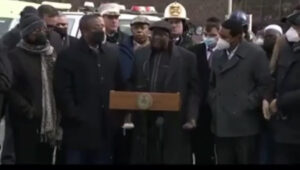
In 2000, The Gambia National Army (The Gambia National Guard Unit) Police Duties Regulations was made pursuant to section 147 of the The Gambia Armed Forces Act to give the unit police and judicial powers.
The reason(s) for the emergence of such a sweeping law was not captured in the legislation itself, but it’s interesting to note that it came into being in the same year the deadly student demonstrations, April 10/11 2000 happened which led to the killing of young citizens.
What appears abnormal is that the Regulations gives the National Guard (NG) the same police and judicial powers and responsibilities such as “preservation of law and order, protection of property, prevention and detection of crime, apprehension of offenders and enforcement of all laws and regulations with which the Police are charged”( s. 3(1)). Also, it gives NG power to intervene in any place where public order may be threatened.
In discharging these police powers, the NG shall be under the command of the Commander of the National Guard and not under the police. It may seem normal but it is common knowledge that the police and the army have their common and peculiar trainings and in some situations they cannot become substitute to each other. Thus, the best practice in the developed world is that the NG is only brought in situations to complement the police rather than duplicate functions.
It’s also the best practice that when the army is called in to assist the police in their duties, they submit to the command of the police in the performance of those duties. But, the Regulation did not state that and gives the NG the same powers and responsibilities to be exercised by them without the supervision and direction of the IGP.
Without such clear cut authority, in most situations where both forces intervened, each will likely exhibit power to assert their authority or differing modus operandi with resultant possibility of clash or non-cooperation.
The Regulation gives the NG judicial powers such as investigation of offences, gathering of evidence and prosecution of suspects in the appropriate courts under the supervision of the Attorney General. These powers cannot be effectively carried out without legal training. Although, the Army has officers legally trained but does not have experience of prosecuting civilians in the civilian courts. Their expertise lies with the Court Martial.
The Act gives the NG power to keep suspects in custody “at any National Guard establishment…” and interrogate them. Do we wonder now why civilians were always taken into custody by the NG during the former regime? Also, the Act does not permit suspects to write their own statement and in the presence of legal counsel, contrary to the Criminal Procedure Code and the procedure in police stations.
Section 28 mandates the NG “not to unlawfully or unnecessarily interfere with the individual liberties or the privacy of their person or property”. Where there is interference, it attracts disciplinary action ONLY, regardless of the severity of the abuse and or frequency of commission of the abuse.
It failed to identify the kind of disciplinary actions to be taken. The same mode of punishment goes for any NG officer who commits unlawful arrest and unlawful entry into the residence of the person, even if he pulls down the wall.
I will propose that the Regulation be repealed in its entirety or in the alternative, NG powers be reduced and subsidiary to that of the police. They must be allowed only to exercise their powers under the Regulation with the supervision of the IGP whenever they are called upon to assist in extreme situations. Also, they must not be allowed to prosecute offenders in a civilian court, which is the province of the DPP at the sanction of the AG.
By Simon Sabally










Recent Comments